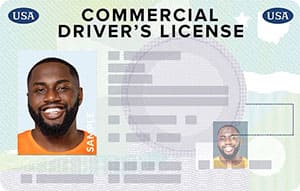Free Florida CDL Combination Practice Test (FL)
- Perfect for first-time and renewal CDL/CLP applicants, and those adding endorsements
- Based on 2024 FL commercial driver's license manual
- Triple-checked for accuracy
- Updated for August 2024

What you need to know
Driving combination vehicles can be an integral part your commercial driving career. Before you can reach that point though, you’ll need to pass an exam from your local branch of the Florida DMV showing that you’ve mastered the specialized knowledge necessary to drive these vehicles safely. The following 30 questions are from the official 2024 Florida CDL Manual, and cover just combination vehicles to help you prepare for this specific DMV test. Good luck both now on the practice exam and on your real exam when the time comes!
Solidify your understanding of CDL combination vehicles with our detailed Combination test collection, specifically designed to enhance your exam readiness.
What to expect on the actual exam
questions
correct answers to pass
passing score
Helpful links
- Alabama
- Alaska
- Arizona
- Arkansas
- California
- Colorado
- Connecticut
- Delaware
- District Columbia
- Florida
- Georgia
- Hawaii
- Idaho
- Illinois
- Indiana
- Iowa
- Kansas
Your go-to, trusted source
Experience the Driving-Tests difference
Clear your Challenge Bank?
This will clear your Challenge Bank and delete all questions.
This cannot be undone.
